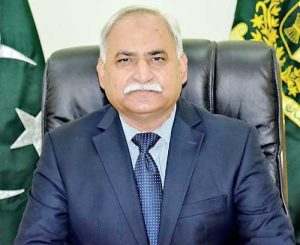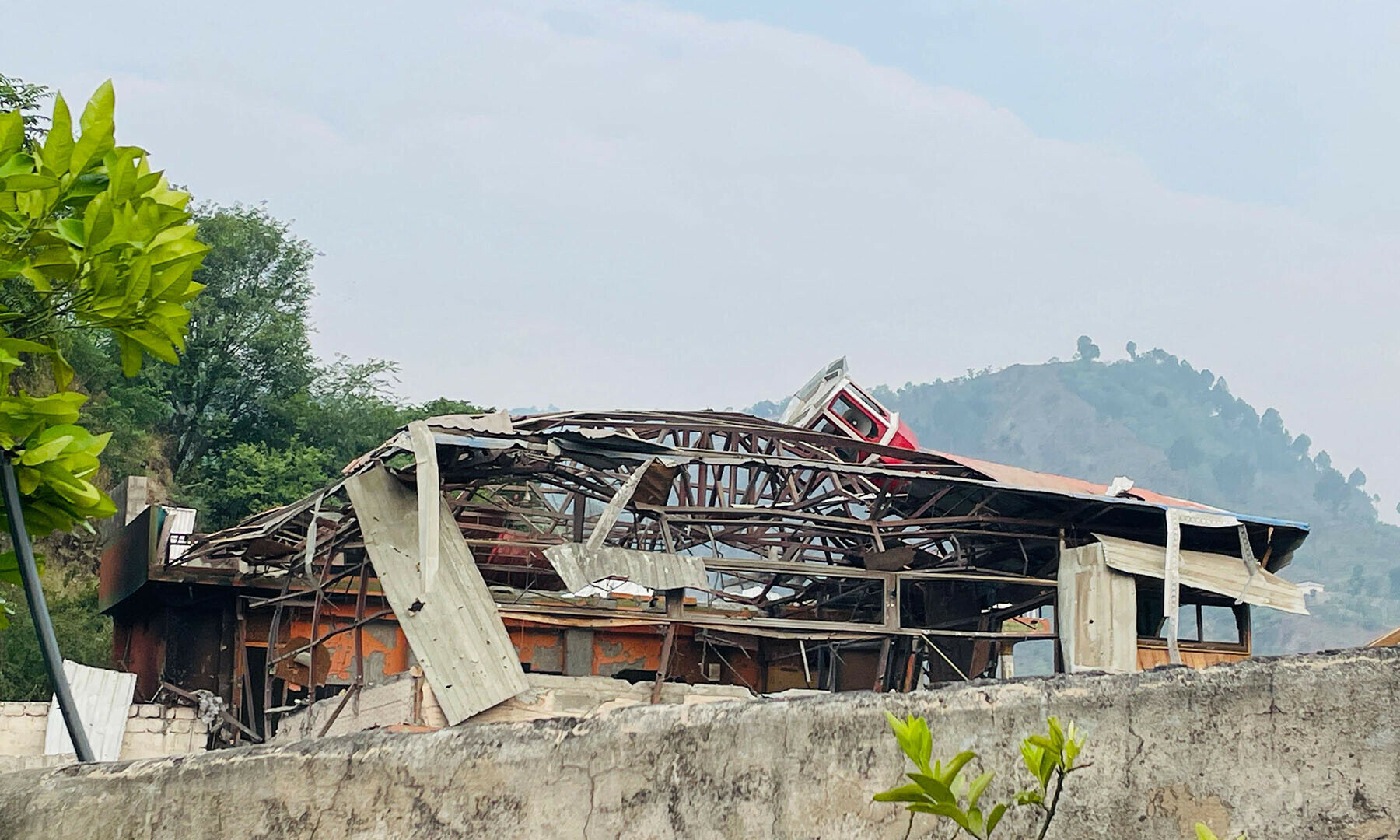
By Dr. Shahid Hashmat
The Jammu and Kashmir Dispute is one the oldest conflict since inception of the United Nations (UN). The United Nations Security Council (UNSC) has passed numerous resolutions to resolve the conflict through UN auspices but no concrete steps have been initiated due to India’s refusal to respect these resolutions. The UNSC passed Resolutions 38 on January 17, 1948, and Resolution 39 on January 20, 1949 and created the United Nations Commission for India and Pakistan (UNCIP). UNCIP proposed that “the question of accession to India or Pakistan was to be decided by a free and impartial plebiscite. India had promised to allow the Kashmiris to use their right of self-determination but instead of doing that she has strengthened its brutal grip over Jammu and Kashmir through perpetual abuse of force.
Kashmir Dispute is main cause of tension and acrimony between India and Pakistan. India and Pakistan has fought four war in 1948, 1965, 1971, and 1999. Both countries have remained at the brink of war at many other occasions in 1998, 2002-2003, 2010, 2019, and 2022. As a result of Indian misadventure across LoC, Pakistan carried had shot down two Indian fighter jets, including one MiG 21 Bison. Pakistan military also captured an Indian Pilot, who was later on returned to India as a good will gesture.
India had used Pulwama attack as a casus belli to attack Pakistan. Pakistan military strategists and planners had conclude that India could stage manage a similar incident in future as well. During the US Vice President, J.D. Vance’s visit to India, on 22 April 2025, purportedly four/five terrorists attacked a tourist resort at Pahalgam in Indian occupied Kashmir. Immediately, India accused Pakistan for sponsoring the attack. Indian electronic and social media started beating the drums of war in hysteric rhetoric.
India announced strong retaliatory measures against Pakistan including suspension of Indus Water Treaty and reduction of diplomats officials at Pakistan Embassy at Delhi. Pakistan, categorically rejected all Indian allegations and accusations. Pakistan offered its full cooperation for an impartial and independent inquiry to be conducted under international experts. India refused this offer.
Om 8-9 May, India launched multiple drone attacks at numerous targets in Pakistan. On 9-10 May, Pakistan responded by hitting number of military targets, including Indian air defence system (SU 400). India launched BrahMos long-range missile targeting three Pakistan Air bases. Pakistan responded strongly and resolutely. Six Indian Air Force jets, including three Raffale, one MiG 29, and one SU 30 were shot down. Pakistani pilots, who were flying Chinese J-10 C fighter jets equipped with a high-tech PL-15 air to air missile, demonstrated Pakistan’s will and resolve to protect its territorial integrity. In addition, many other high value military targets, including Indian air bases were destroyed. The retaliation by Pakistan was so strong, robust, precise, accurate, and devastating that it created awe and shock in India.
On 10 May, Indian and Pakistan announced that they were implementing an immediate case-fire. The US President Trump said in a post on Truth Social: “After a long night of talks mediated by the United States, I am pleased to announce that India and Pakistan have agreed to a full and immediate ceasefire.” Pakistan’s Deputy Prime Minister and Foreign Minister said: “ India and Pakistan have agreed to a cease-fire with immediate effect. Pakistan has always strived for peace and security in the region, without compromising on its sovereignty and territorial integrity.” CNN, reported: “When India attacked three Pakistani airbases, Pakistan responded with a relentless, massive barrage of missiles and rockets … into Indian military facilities, airbases, and weapons storage sites. That really put India on the back foot — they didn’t know what had happened.” 
Since 10 May, a fragile cease-fire prevails. Both sides have not lowered their guards. Though. detailed terms of cease-fire have not been made public. Defence and security analysts opine that dangers of further escalation still exists, if India does not reconcile with realty.
At present, no war, no peace situation prevails between India and Pakistan, which fuels constant mistrust. India is miscalculating Pakistan’s resolve to protect its territorial integrity and sovereignty, which has resulted in misadventure repeatedly. Without resolution of Kashmir Dispute, South Asia will never see a long last peace, political stability and economic progress. The recent escalation of May 2025 demonstrates great danger of further escalation and the nuclear threshold has been lowered to an extremely dangerous level.
The Myth of Indian Armed Forces’ invincibility stands completely shattered. Pakistan has very skilfully integrated modern Chinese superior technology, air crafts and weapon system, which give her a clear edge in balance of force in qualitative terms that affords it an ability to compensate its numerical imbalance. On the strategic, regional and global level, the conflict between India and Pakistan needs to be viewed with a different prism, not as a simple bilateral dispute. In fact it is a practical manifestation of global power rivalry and great power competition between the US and India in one block and China and Pakistan in the other. This competition has becomes more visible in the context and backdrop of China’s BRI and CPEC, which has been vehemently opposed by the US and India.
In view of India’s arrogant attitude and illusionary mindset, the current conflict is not yet over. India, having suffered unexpected losses, have asked the US to help her to gain a strategic pause, following the teachings of Chanakya. Having reorganized, reequipped, India may launch another military operation to take revenge of its defeat and insult. For doing so, India will not hesitate to organise another ‘false fag’ operation at a much larger scale to seek a cogent casus belli, which should help her to galvanize public support and convince the international community to take strong punitive actions against Pakistan. India has already declared that any act of terror in future will be considered as an Act of War. Many senior Indian leaders are boasting that India has breached the LoC and international border and would do so in future as well by hitting target deep inside Pakistan.
Pakistan needs stability within the country and in the region, which is essential for the economic progress and prosperity. Therefore, it would opt for peace. If the US can help to diffuse tension and can help to initiate for negotiations for peace, such efforts must be appreciated with open heart. The US Secretary of State, Marco Rubio has already said that India and Pakistan will start board based negotiation very soon. In addition to the US, Pakistan must engage its most trusted friend China and other friendly country like Turkey, Saudi Arabia, UAE, and Qatar. Russia’s support for peace deal will also be of a great value.
However, Pakistan must remain vigilant and prepared and must not be surprised by India. Any mediation to resolve Kashmir Dispute must take into considerations the UN resolution and Kashmiris’ right of self-determination, who have suffered sacrificed a lot. Pakistan should focus on ‘Composite Dialogue concerning four main issue: no comprise on Indus Water Treaty; Structured Dialogue on resolution of Kashmir Dispute under the UN resolutions; institutionalization of joint inquiry in case of ant terrorist act taking place in India or Pakistan, including Jammu and Kashmir; and restoration of special status of State of Jammu and Kashmir that has been withdrawn through revocation of Art.370 and Art.35 A. Pakistan should seek SCO members’ help in resolve the Kashmir Dispute in the light of UNSC resolutions.
On the national security and defence side, Pakistan should strengthen more robust cooperation and collaboration with China, which is the only trust worthy, all weather friend, and an Iron-clad Strategic Partner. Pakistan need to enhance its collaborative joint production of modern and – high-tech defence equipment, including air crafts, missiles, rockets, radars, air defence systems, ships, submarines, electronic warfare equipment, and satellites etc. More attention should also be accorded to network centric warfare and cyber-warfare. Strength creates deterrence, bring peace and stability but weakness invits aggression.


